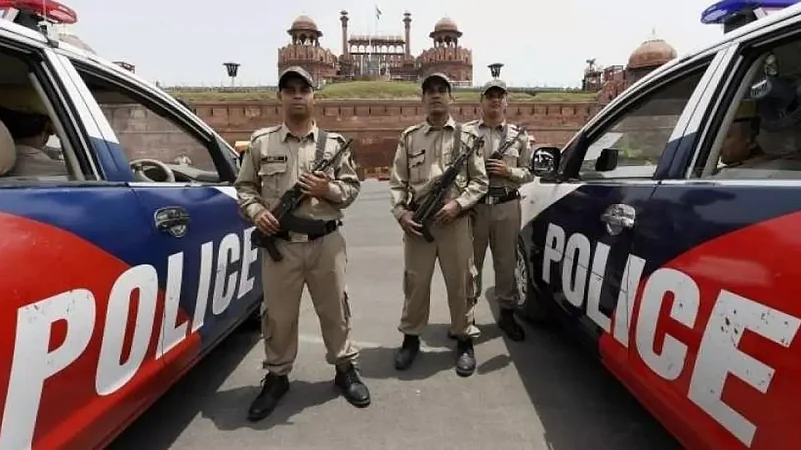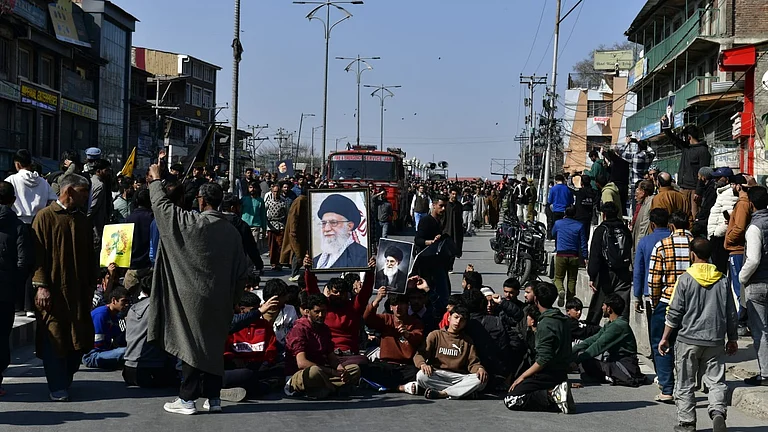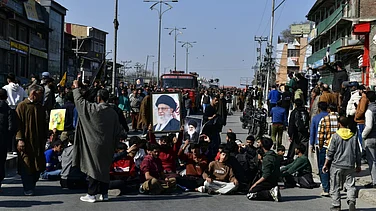The Delhi Police's Special Cell on Monday arrested absconding suspected ISIS terrorist who is one of the most wanted suspects in the country.
The suspected terrorist has been identified as Md. Shahnwaz Shafiuzzama Alam, on whom the National Investigation Agency (NIA) had declared a reward of Rs 3 lakh.
Two other suspected ISIS terrorists, identified as Mohammad Rizwan Ashraf and Mohammad Arshad Warsi, were also arrested.
Shahnwaz is an accused along with three others in the 'Pune ISIS module case'. He was arrested from Jaitpur in Delhi. Ashraf was arrested from Lucknow and Arshad was arrested from Moradabad in Uttar Pradesh.
Shahnwaz had earlier been held by the police in Pune in July but had managed to escape the custody. The three others wanted in the Pune ISIS module case are Rizwan Abdul Haji Ali, Abdullah Faiyaz Shaikh, and Talha Liyakat Khan.
Shahnwaz is an engineer by profession and is understood to be aware of bomb-making. During his arrest, bomb-making material was also recovered from him.
The police said that elementary plastic tubes, iron pipes, different types of chemicals, timing devices, etc. along with a pistol and cartridges were recovered from Shahnwaz at the time of the arrest, according to PTI.
The PTI also reported that bomb-making literature suspected to have been sent by their across-the-border handlers was also recovered from Shahnwaz.
While Shahnwaz was mining engineer, Arshad was a mechanical engineer who studied in UP's Aligarh and Ashraf was a computer science engineering graduate from UP's Azamgarh, who was also trained as a cleric.
The India Today reported Delhi Police's Special Commissioner HGS Dhaliwal as saying that the arrests came as they were on keeping an eye on "the Indian Mujahideen and IS kingpin". The Indian Mujahideen (IM) is a designated terrorist organisation that carried out a series of deadly bombings across the country throughout the 2000s. It was formed after the crackdown on another designated terrorist organisation Students Islamic Movement of India (SIMI). The IS refers to the global terrorist organisation Islamic State, also well-known as ISIS.
"The main accused, Shahnawaz, was arrested with his two other partners this morning. Another accused, identified as Mohammad Rizwan, is absconding," said Dhaliwal, as per India Today.
All three accused were produced in a court and have been remanded to seven-day custody.
"They conducted a recce at various places in western and southern India. Right from procuring materials, containers and pipes for explosives were with them. They were supported and promoted by ISIS elements. They have a pan-India footprint," said Dhaliwal.
The India Today further quoted the police as saying that the three suspected terrorists were planning to attack very very important persons (VVIPs).
The ISIS, also called the Islamic State, is a global terrorist organisation with roots in the Middle East. For years, the ISIS controlled large parts of Iraq and Syria and ran its writ in the region. It is committed to the establishment of a global Islamic state called the Caliphate in the world. The 'state' that it ran in Iraq and Syria, which was finally defeated in 2019, was also called the Caliphate.
While the physical Caliphate has been defeated, the ISIS now has affiliates across the world, which are like its branches, through which it carries out terrorist activities. Besides these affiliates, the ISIS also has smaller modules for particular acts of terror and carries out 'remote-controlled' attacks where handlers based in the Middle East or anywhere else would virtually radicalise and guide a person to carry out an attack in a far-off place.
"ISIS’s overarching goals center on the reestablishment of a global, Islamic caliphate and fostering violent conflict between Muslims and non-Muslims...Since its official founding in June 2014, this doctrinal commitment led ISIS to hold territory for more than three years across Iraq and Syria, and continue to hold territory in Afghanistan, Libya, and Nigeria...Underpinning the allegiance to the caliphate, ISIS adheres to a literalist interpretation of Sunni Islam, specifically embracing beliefs according to an extremist Salafi vision," notes the think tank Counter Extremism Project (CEP).






















